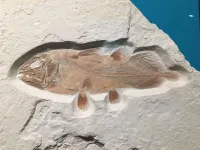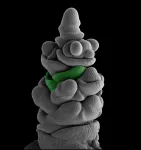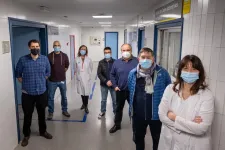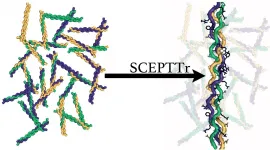(Press-News.org) New study from Warwick Medical School examined the effectiveness of three alternatives to CPR, concluding that none were beneficial
First comprehensive systematic review of evidence on precordial thump, percussion pacing and cough CPR - all of which have fallen out of routine practice
Precordial thump is often portrayed in television and film, and cough CPR misinformation circulates frequently on social media - but neither are effective
Reaffirms CPR as the 'gold standard' technique when assisting someone experiencing a cardiac arrest
A technique frequently portrayed in dramatic resuscitation scenes in television and film is among several alternative methods to CPR that have shown no benefit in saving lives in a review by University of Warwick researchers.
The systematic review reinforces cardiopulmonary resuscitation (CPR) as the 'gold standard' technique when health professionals or members of the public are attempting to resuscitate someone in cardiac arrest.
The article, published in the journal Resuscitation, is the first comprehensive systematic review of evidence on the effectiveness of three less-used resuscitation techniques: cough CPR, percussion pacing and precordial thump. The precordial thump, in which a patient is struck on the chest in the hope of restarting the heart, has often been used in dramatic scenes in TV and film, such as in Grey's Anatomy and Lost.
The researchers from the Warwick Clinical Trials Unit analysed data from 23 previously published studies that examined the effectiveness of the three techniques. The research examined precordial thump, in which a rescuer will make a firm strike to a patient in cardiac arrest in the lower half of the sternum; percussion pacing where a less forceful, repetitive and rhythmical impact is made to the left sternal edge; and cough CPR - a misnomer as it does not involve CPR - in which an individual coughs forcefully if they feel they are about to collapse.
Although popular media and social media frequently portray these techniques positively, researchers conclude that there is no benefit to using any of the three techniques either in hospital nor outside of it. In particular:
Use of the precordial thump may actually increase risk to the patient
Social media reports on 'cough CPR' erroneously confuse cardiac arrest (when someone has collapsed, is unconscious and unresponsive and is not breathing) and heart attack (which typically presents with chest pain when blood supply to the heart is insufficient) and - potentially dangerously - advocates for the person driving to hospital whilst continuing to cough. Anyone who thinks they may be having a heart attack or has concerning chest pain should seek immediate medical attention.
The research team concludes that this reaffirms CPR as the 'gold standard' in the situation of a cardiac arrest, as recommended by Resuscitation Council UK and resuscitation experts worldwide. Both health professionals and members of the public should prioritise it when faced with an individual experiencing a cardiac arrest, rather than be delayed with the use of other techniques.
It is vital that the person in cardiac arrest receives CPR, which is a skill everyone should be encouraged to learn. Every minute without CPR and early defibrillation can decrease someone's chances of survival by up to 10%. Resuscitation Council UK Guidelines stress the importance of prompt action with CPR and early defibrillation as being vitally important to giving someone the best chance of survival.
Lead author Dr Christopher Smith, a Clinical Lecturer at Warwick Medical School and an Emergency Medicine doctor said: "People need to continue doing the basics: if someone collapses you should call 999, start CPR, and if someone else is present they should find a defibrillator. Those who have chest pains and are unwell need to seek medical advice without delay. Early intervention by members of the public has the biggest impact on survival.
"The effectiveness of these techniques have been considered in international resuscitation guidelines, but this is the first time they have been comprehensively studied in a systematic review. They are not established practices but were at one time advocated and have since fallen out of favour. Some of these techniques are still being used around the world and with this research can confidently say they are of no benefit to patients."
Sue Hampshire, Director of clinical and service development at Resuscitation Council UK said: "Prompt action when someone has collapsed and is not breathing normally is crucial to the person's chances of survival. There isn't time for confusion. So, we believe it's vitally important that as many people as possible know how to spot if someone has collapsed and stopped breathing normally, so they act quickly by calling 999, starting CPR and accessing a nearby defibrillator.
"We want everyone to learn the simple steps to perform CPR that will give somebody having a cardiac arrest their best chance of survival, whilst reducing the risk of COVID-19 transmission from performing CPR.
"During this time when COVID-19 is widespread within the community we advise some modifications to standard CPR techniques. Loosely lay a face covering, (such as a mask, cloth, towel or item of clothing), over the mouth and nose of the person who has collapsed, do not put your face next to theirs when checking for breathing and do chest compression only CPR (no mouth-to-mouth rescue breaths).
"You can find out more about how to keep yourself safe while doing CPR by visiting http://www.resus.org.uk/watch. Your quick actions could be the difference between someone living or dying."
Co-author Professor Gavin Perkins, head of the Warwick Clinical Trials Unit, said: "Stepping forward to help someone in an emergency can literally make the difference between life and death. If you find someone who is unconscious, with absent or abnormal breathing - call 999 and start chest compressions if instructed to do so."
INFORMATION:
'The effect of alternative methods of cardiopulmonary resuscitation - cough CPR, percussion pacing or precordial thump - on outcomes following cardiac arrest. A systematic review.' Will be published in Resuscitation, DOI: 10.1016/j.resuscitation.2021.01.027 Link: https://doi.org/10.1016/j.resuscitation.2021.01.027
Notes to editors:
For interviews or a copy of the paper contact:
Peter Thorley
Media Relations Manager (Warwick Medical School and Department of Physics) | Press & Media Relations | University of Warwick
Email: peter.thorley@warwick.ac.uk
Mob: +44 (0) 7824 540863
Or:
Tom Frew, Senior Press and Media Relations Manager - University of Warwick:
E: a.t.frew@warwick.ac.uk
M: +44(0)7785433155
Resuscitation Council UK press team
Tel: 0207 391 0730
Email: publicaffairs@resus.org.uk
About Resuscitation Council UK
Resuscitation Council UK is saving lives by developing guidelines, in?uencing policy, delivering courses and supporting cutting-edge research. Through education, training and research, we're working towards the day when everyone in the country has the skills they need to save a life.
Scientists created a framework to test the predictions of biological optimality theories, including evolution.
Evolution adapts and optimizes organisms to their ecological niche. This could be used to predict how an organism evolves, but how can such predictions be rigorously tested? The Biophysics and Computational Neuroscience group led by professor Gašper Tkačik at the Institute of Science and Technology (IST) Austria has now created a mathematical framework to do exactly that.
Evolutionary adaptation often finds clever solutions to challenges posed by different environments, from how to survive in the dark depths of the oceans to creating intricate organs such as an eye or an ear. But can we mathematically predict these outcomes?
This is ...
Fossilised remains of a fish that grew as big as a great white shark and the largest of its type ever found have been discovered by accident.
The new discovery by scientists from the University of Portsmouth is a species of the so-called 'living fossil' coelacanths which still swim in the seas, surviving the extinction that killed off the dinosaurs.
The discovery was purely serendipitous. Professor David Martill, a palaeontologist from the University's School of the Environment, Geography and Geosciences, had been asked to identify a large ...
In plants, the "meristem" refers to a type of tissue comprising undifferentiated cells from which various other plant organs can develop through cell division and differentiation. These "plant stem cells" give rise to shoots, leaves and roots, but also spikes and flowers.
The research team including members of the Cluster of Excellence on Plant Sciences CEPLAS investigated the function of a gene responsible for the different spike forms of wheat and barley. This gene controls the activity of the spike and floret meristems and thus the number of spikelet ...
The research team that developed a biosensor that first recorded that a distinct gradient of the plant growth hormone gibberellin correlated with plant cell size has now revealed how this distribution pattern is created in roots.
Starting when a plant embryo forms within a seed and continuing throughout the plant lifecycle, undifferentiated stem cells undergo radical transformations into specialised root, stem, leaf and reproductive organ cells. This transformation relies on a suite of molecules called phytohormones that, much like human hormones, can move between cells and tissues and trigger distinct biological processes across the bodyplan. While it was not known at the time, mutations involving the gibberellin class of ...
PITTSBURGH, Feb. 15, 2021 - Why do patients who receive antipsychotic medications to manage schizophrenia and bipolar disorder quickly gain weight and develop prediabetes and hyperinsulemia? The question remained a mystery for decades, but in a paper published today in Translational Psychiatry, researchers from the University of Pittsburgh School of Medicine finally cracked the enigma.
Antipsychotic drugs, scientists showed, not only block dopamine signaling in the brain but also in the pancreas, leading to uncontrolled production of blood glucose-regulating hormones and, eventually, obesity and diabetes.
"There are dopamine theories of schizophrenia, drug addiction, depression and neurodegenerative disorders, and we are presenting a dopamine theory of metabolism," said lead ...
For more than a decade, governments in countries across the world have made significant progress to expand their protected areas network to conserve the planet's biodiversity. According to a new study published in the journal Global Change Biology, the locations of these protected areas do not take into account the potential long-term effects of climate change in these protected areas.
Creating and managing protected areas, such as national parks, is key for biodiversity conservation. As the climate changes, however, species will disperse in order to maintain their specific habitat needs. Species that were in protected areas ...
Almost half the patients admitted to an intensive care unit (ICU) require invasive mechanical ventilation (IMV), a medical procedure that guarantees a sufficient supply of oxygen to their organs and tissues. The therapy involves connecting patients to a machine that substitutes their spontaneous breathing. In recent months it has been in general use in intensive-care patients affected by COVID-19.
Although it can often save a patient's life, invasive mechanical ventilation is not risk-free: there can be accidental injury during intubation or extubation or the muscles ...
A NEW study from the University of Chichester has shed light on how people coped psychologically with the sudden and life-changing disruption caused by COVID-19.
This new publication, by Chichester's Professor Laura Ritchie and PhD candidate Benjamin Sharpe, in collaboration with Professor Daniel Cervone of the University of Illinois at Chicago, provides a unique snapshot into people's understanding of their goals and self-beliefs amidst a shared, unexpected alteration of the daily landscape during lockdown.
Ritchie and colleagues collected their ...
HOUSTON - (Feb. 15, 2021) - Collagen is the king of biological proteins, and now it has a SCEPTTr.
That's the handle of an algorithm developed by Rice University scientists who study natural and synthetic versions of collagen, which accounts for about a third of the body's proteins and forms the fibrous glue in skin, bones, muscles, tendons and ligaments.
The program -- full name, Scoring function for Collagen-Emulating-Peptides' Temperature of Transition -- accurately predicts the stability of collagen triple helices, the primary structure that forms fibrils.
The Rice team led by chemist and bioengineer Jeffrey ...
According to some estimates, chronic pain affects up to 40% of Americans, and treating it frustrates both clinicians and patients--a frustration that's often compounded by a hesitation to prescribe opioids for pain.
A new study from the University of Michigan School of Dentistry confirms that a low dose of a drug called naltrexone is a good option for patients with orofacial and chronic pain, without the risk of addiction, said first author Elizabeth Hatfield, a clinical lecturer in the Department of Oral and Maxillofacial Surgery and Hospital Dentistry.
Naltrexone is a semisynthetic opioid first developed in ...







